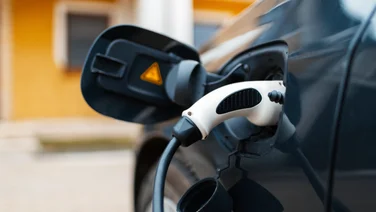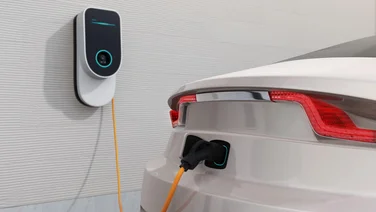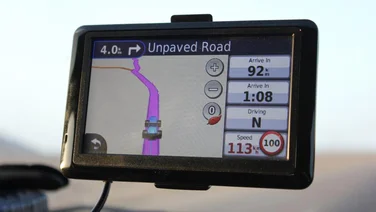To help us provide you with free impartial advice, we may earn a commission if you buy through links on our site. Learn more

If you’re considering a home EV charger, you’ll need to know how much it costs to charge an electric car at home versus doing so at a public charge point. Obviously, charging an EV at home isn’t free: as with anything else – be it a light bulb, a lawn mower, a microwave or an electric oven – as soon as you power up, your energy bill also goes up. The good news is that it’s easy to track how much electricity your car is using and what it costs.
But running an electric car means it’s even more important to ensure you’re on the best – and cheapest – energy tariff, as it’s likely your vehicle will be the single most power-hungry device you own.
Read on to discover what it costs to charge an electric car from home and how to ensure you’re getting the best deal. However, if you would like to find out directly from suppliers near you, try our free price comparison tool.
READ NEXT: The best EV chargers for your home
Get a free home EV charger installation quote today
Need a quote for the cost of a home EV charging point? Take our quick survey below and we’ll provide a quote for installation that matches your exact requirements.
How much does it cost to charge an EV at home?
The cost of a home charge will be governed by your home electricity tariff because each has their own prices and, if you’re on a dual-rate tariff, it will be cheaper during the night. As you can see in our best EV tariff guide, signing up to an EV tariff could see your cost to charge drop to less than 10p per kilowatt hour (kWh) – much less than the 34p/kWh price cap.
In its simplest terms, you’ll need to multiply your car’s battery capacity (measured in kilowatts, abbreviated to kW) by the cost of your electricity per kilowatt hour.
So, for example, to charge a Volkswagen ID.3’s 58kW battery on a tariff that costs 10p/kWh, you’ll pay £5.80. On a tariff at the electricity price cap of 34p/kWh, it will cost £19.72 – significantly more, but still a fraction of what it would cost to cover the same mileage in a petrol or diesel car.
Of course, that assumes that your battery is completely flat to start with, and it never really will be, but just like with a petrol or diesel car, the more fuel you require, the more you’ll have to pay.
Are you interested in an EV charge point for your home?
Pick the best provider for you
How much will my electricity bill go up by?
As the amount of electricity you’ll actually use will be governed by how often you charge, how much of your vehicle’s battery capacity you use and the efficiency of your car, the additional cost you’ll pay will be dependent on all these factors and the cost per kilowatt hour outlined in your electricity tariff. That means it’s almost impossible to place an indicative figure on how much your electricity bill will increase. But, using our example from before, a VW ID.3 will likely cost between £5.80 and £19.72 to charge from flat to full each time, so charging once a week could add between £23.20 and £78.88 to your monthly electric bill.

It’s often hard to spot the financial impact of powering individual home appliances, even with a smart meter, but an electric car is likely to be the single biggest consumer of electricity in your household. As a result, with the numbers on your smart meter increasing, you can expect to see a similarly noticeable increase in your monthly electricity statements.
READ NEXT: How to install an EV charger at home
Is it cheaper to charge an electric car at home?
Unless you can secure free charging at your workplace or find a public car park with a free-to-use charger, charging from home will represent the cheapest option. That’s because you’ll likely be on a domestic electric tariff, paying the same rate whether you’re plugging in your car, boiling a kettle or charging a phone.
If you’re on a dual-rate tariff or a bespoke EV tariff, costs can be reduced depending on the time of day you charge. If you’re able, take advantage of scheduled charging features on your car, your car’s companion app or your wallbox app in order to fully exploit the cheaper rates when they’re available.

Public charging is significantly more expensive – three times more in some cases – but bear in mind the networks incur huge costs when installing chargers. They’ll pay to lay the necessary infrastructure under roads and pavements, and landowners are likely to levy them for installing chargers in car parks or service stations, too. Plus, of course, the heavyweight hardware required to pump electricity at high speed is extremely expensive. These are all costs that are passed on to the customer.
Are you interested in an EV charge point for your home?
Pick the best provider for you
Will the cost of home charging increase if energy prices rise?
Ensuring you’re on a fixed-rate tariff should limit your exposure to rising energy prices but, as we’ve seen with the recent volatility in wholesale energy markets, it’s not a given and if the energy price cap rises, so too will your home charging costs.
Nevertheless, home charging is still highly likely to remain substantially cheaper than the cost of petrol and diesel.






